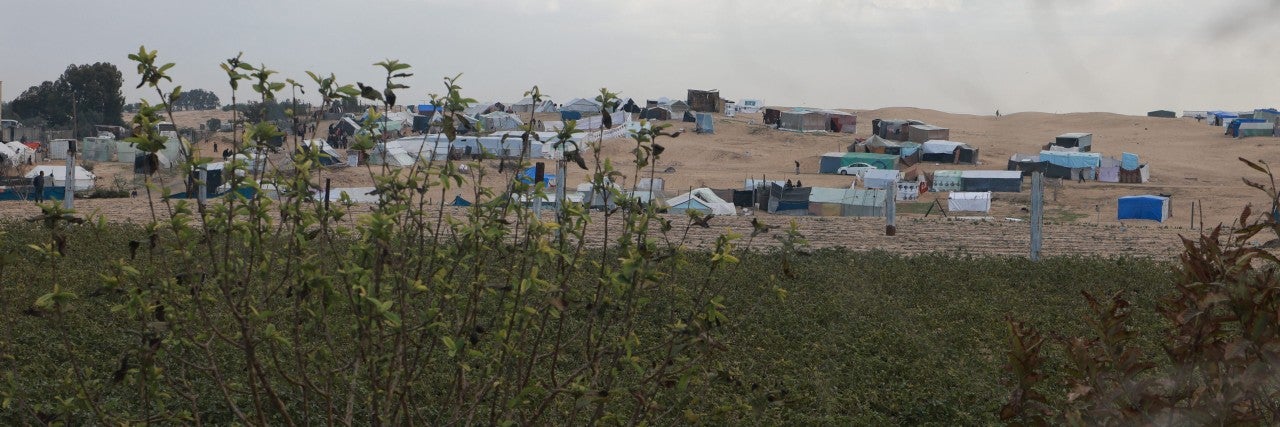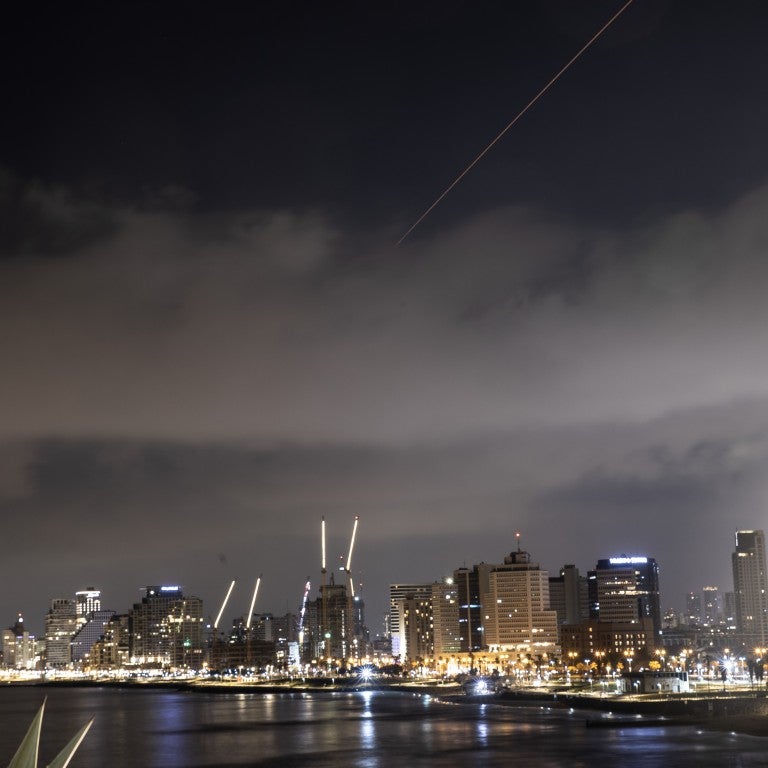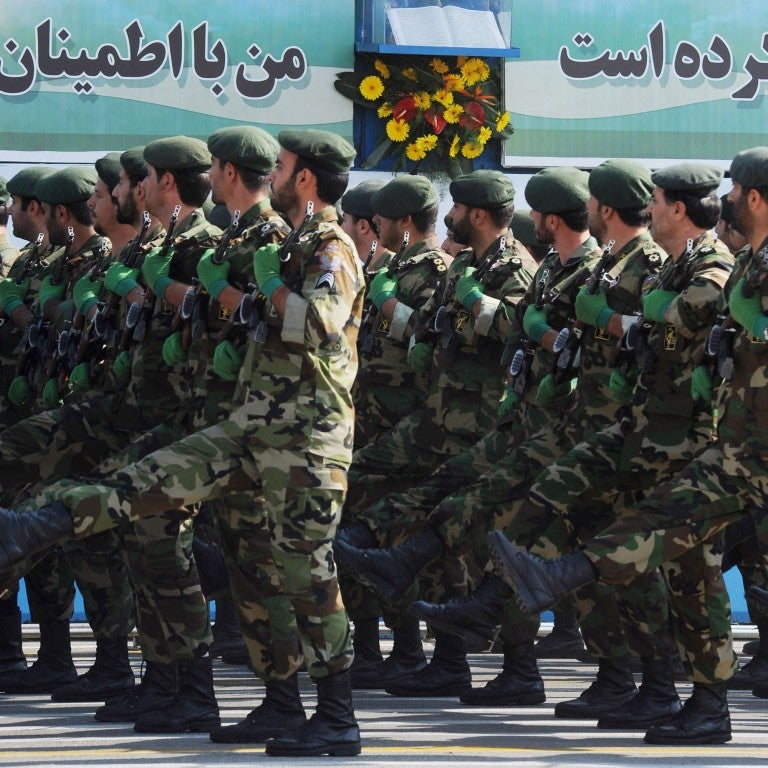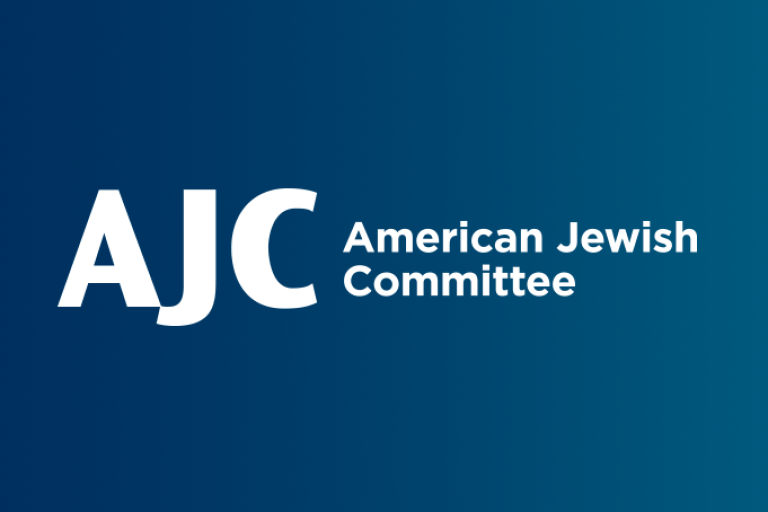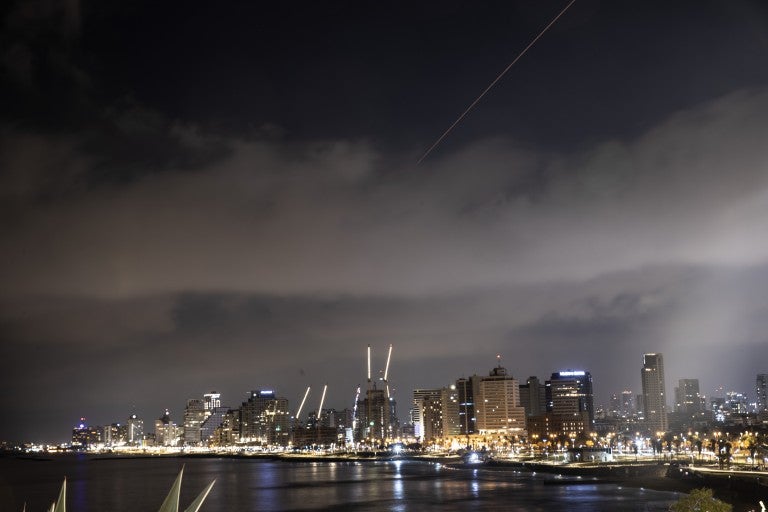March 18, 2024
Israeli Prime Minister Benjamin Netanyahu has declared that the southern Gaza city of Rafah is Israel’s next military objective. But first, he ordered the Israel Defense Forces (IDF) to develop a strategy to evacuate Rafah’s residents and displaced Palestinians who heeded Israel’s evacuation orders from other parts of Gaza.
On March 15, Netanyahu approved the IDF's operational plans for Rafah. "We will operate in Rafah. This will take several weeks, and it will happen," he said at a weekly cabinet meeting on March 17.
According to Netanyahu, destroying Hamas’ four remaining battalions in Rafah is critical to Israel’s effort to protect its citizens from the Hamas terror group responsible for the October 7 massacre of nearly 1,200 people, mostly civilians, and the kidnapping of 253 hostages. Israel’s ultimate goal is to collapse Hamas governance and free the remaining hostages.
However, the international community, including key Western allies such as the United States and Europe, has expressed deep concern that an Israeli operation in Rafah could lead to a further deterioration in the humanitarian situation in the Gaza Strip.
The IDF already conducted air strikes in Rafah and, last month, rescued two hostages—Fernando Simon Marman and Luis Har.
A ground offensive in Rafah will likely take time as the Israeli military continues to root out Hamas elsewhere in Gaza, like in Khan Younis and at least two other areas in central Gaza.
Here’s what you need to know as the IDF continues its mission to rescue hostages and defend Israel.
Why is it essential for Israel to carry out a military operation in Rafah?
Last month’s heroic rescue of kidnapped Israelis indicates additional hostages are being held there. As many as 134 hostages remain in captivity; a number of them are now presumed dead.
Rafah is one of the last strongholds for Hamas terrorists. A campaign in Rafah is essential to destroying Hamas’ and other terrorist groups' military capabilities. Of equal importance is finding a way to obstruct Hamas’ underground network of tunnels between Egypt and Gaza.
How did the tunnels get there?
When Israel disengaged unilaterally from Gaza in August 2005, there was a new accord set, called the Philadelphi Accord, named for the Philadelphi Corridor, the road between Egypt and Gaza. This Accord enabled Egypt and the Palestinian Authority to deploy security guards on their respective sides of the 8-mile stretch, primarily in Rafah.
Shortly after Hamas gained control of the Gaza Strip, throwing out the Palestinian Authority in a bloody coup in 2007, a “tunnel industry” began to thrive under the border between Gaza and Egypt. Hamas has operated most of these tunnels, collecting tolls and trafficking explosives, guns, rockets, and drones. Terrorists also have used the tunnels to go to and from Gaza in order to train in Iran and other countries.
Egypt has worked to destroy the tunnels in the past, but smuggling remains a concern. Ridding the area of Hamas and destroying the tunnels once and for all is an Israeli security priority.
How will Israel protect civilians?
Ahead of a potential Rafah operation, the Israeli military said that it plans to direct a significant portion of the 1.4 million displaced Palestinians living in Rafah toward “humanitarian islands.”
IDF spokesman Rear Adm. Daniel Hagari said that moving the Palestinian civilians to designated areas, which would be done in coordination with international actors, was a key part of the IDF’s preparations for a Rafah operation.
“We need to make sure that 1.4 million people or at least a significant amount of the 1.4 million will move. Where? To humanitarian islands that we will create with the international community,” Hagari told reporters at a briefing.
Hagari said that these “islands” would provide temporary housing, food, water, and other necessities. He did not elaborate on when the offensive would begin but said that it would be coordinated with neighboring Egypt, which has said it does not want displaced Palestinians crossing over its border.
At the start of the Israel-Hamas War, Israel created humanitarian corridors for Palestinian civilians to temporarily evacuate northern and central Gaza, and designated land along Gaza’s Mediterranean coast as a safe zone.
Would a military operation in Rafah put Israel’s peace treaty with Egypt or other normalization efforts in jeopardy?
Soon after Netanyahu indicated the possibility of an operation to dismantle Hamas in Rafah, several news sources reported that the historic and decades-long peace treaty between Egypt and Israel could be at risk. But those reports were greatly exaggerated. Egypt’s Foreign Minister Sameh Shoukry has said the treaty is secure.
Egypt has already raised and reinforced its border wall, boosted security, and stationed more than three dozen tanks along its border to prevent Palestinians from illegally crossing over.
Could a ground operation in Rafah undermine other relationships with allies, including the U.S.?
The U.S. continues to support Israel’s efforts to defend its citizens from Hamas. But the U.S. has said there needs to be a credible plan to protect civilians if Israel goes into Rafah, which again is precisely what Netanyahu called on his cabinet to create.
"We never said that they can’t go into Rafah to remove Hamas,” said White House National Security Communications Advisor John Kirby in February. “Hamas remains a viable threat to the Israeli people. And the Israelis and the IDF, absolutely, are going to continue operations against their leadership and their infrastructure, as they should. We don’t want to see another October 7th."
However, on March 9, President Joe Biden warned that an Israeli attack would cross a “red line,” but did not detail the consequences of the campaign.
“It is a red line, but I am never going to leave Israel. The defense of Israel is still critical,” Biden told MSNBC. "So there is no red line [when] I am going to cut off all weapons, so they don’t have the Iron Dome to protect them. But there’s red lines that if he crosses…. You cannot have 30,000 more Palestinians dead.”
On March 12, White House National Security Advisor Jake Sullivan clarified Biden’s remarks, saying that the “president didn’t make any declarations or pronouncements or announcements.”
“Our position is that a military operation in Rafah that does not protect civilians, that cuts off the main arteries of humanitarian assistance and that places enormous pressure on the Israel-Egypt border is not something that he can support,” he said, reiterating the administration’s call for “a credible plan to deal with the population there…. [A]s things stand today, we have not seen what that plan is.”
According to Sullivan, Israel will send an interagency team to Washington, D.C., to discuss a Rafah operation.
The U.S. is pressing Hamas to accept a negotiated deal for a six-week ceasefire that would include the release of a number of Israeli hostages, the release of a larger number of Palestinian security prisoners, and an increase in humanitarian aid – with the possibility of extending the ceasefire to facilitate further releases.
"There is a deal on the table, and as we have said, Hamas needs to agree to that deal,” Vice President Kamala Harris said on March 3. “Let's get a ceasefire."
